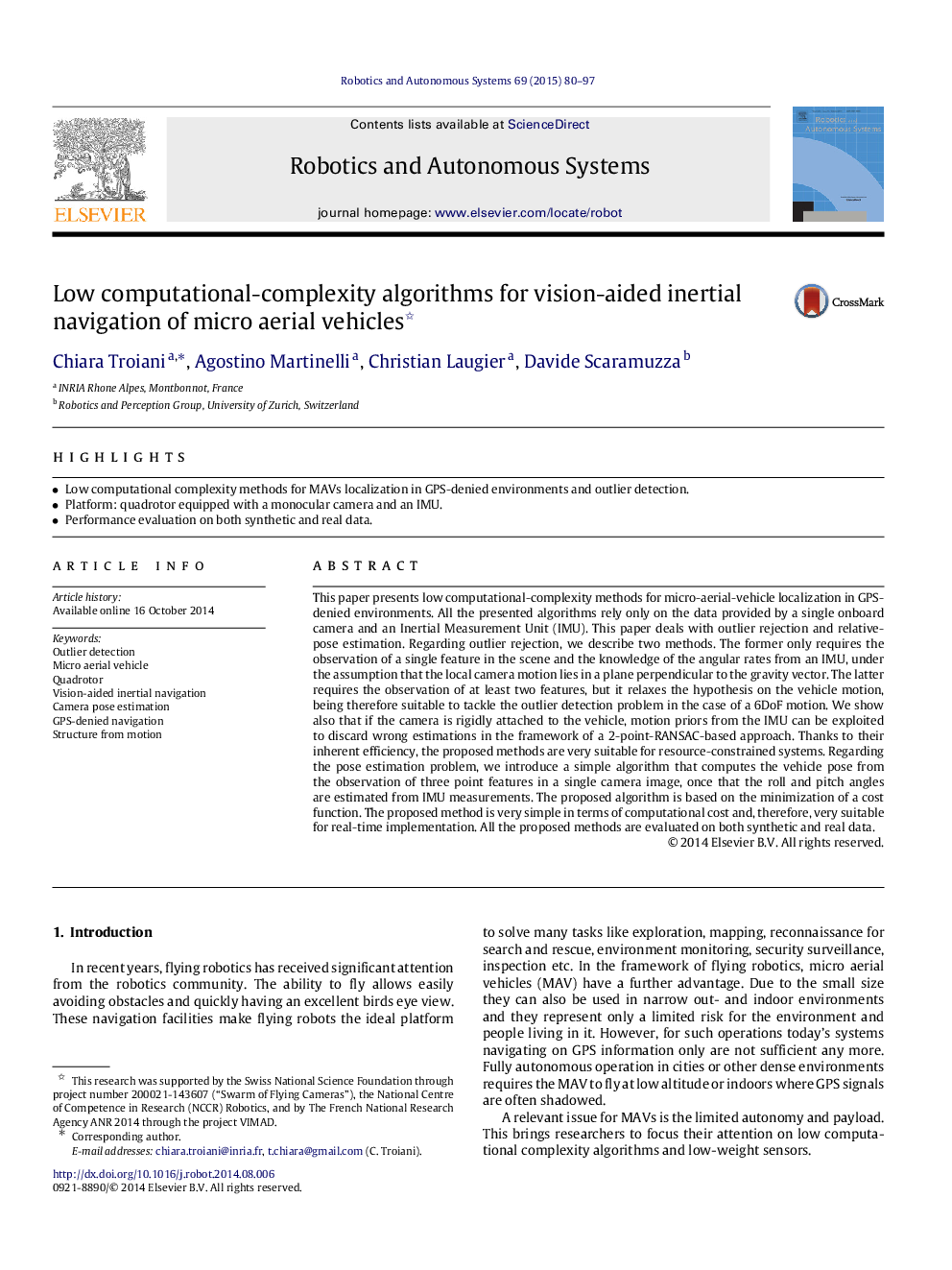| Article ID | Journal | Published Year | Pages | File Type |
|---|---|---|---|---|
| 411290 | Robotics and Autonomous Systems | 2015 | 18 Pages |
•Low computational complexity methods for MAVs localization in GPS-denied environments and outlier detection.•Platform: quadrotor equipped with a monocular camera and an IMU.•Performance evaluation on both synthetic and real data.
This paper presents low computational-complexity methods for micro-aerial-vehicle localization in GPS-denied environments. All the presented algorithms rely only on the data provided by a single onboard camera and an Inertial Measurement Unit (IMU). This paper deals with outlier rejection and relative-pose estimation. Regarding outlier rejection, we describe two methods. The former only requires the observation of a single feature in the scene and the knowledge of the angular rates from an IMU, under the assumption that the local camera motion lies in a plane perpendicular to the gravity vector. The latter requires the observation of at least two features, but it relaxes the hypothesis on the vehicle motion, being therefore suitable to tackle the outlier detection problem in the case of a 6DoF motion. We show also that if the camera is rigidly attached to the vehicle, motion priors from the IMU can be exploited to discard wrong estimations in the framework of a 2-point-RANSAC-based approach. Thanks to their inherent efficiency, the proposed methods are very suitable for resource-constrained systems. Regarding the pose estimation problem, we introduce a simple algorithm that computes the vehicle pose from the observation of three point features in a single camera image, once that the roll and pitch angles are estimated from IMU measurements. The proposed algorithm is based on the minimization of a cost function. The proposed method is very simple in terms of computational cost and, therefore, very suitable for real-time implementation. All the proposed methods are evaluated on both synthetic and real data.
